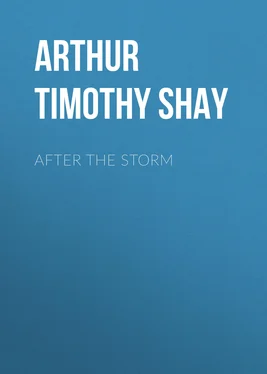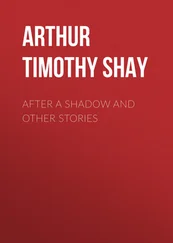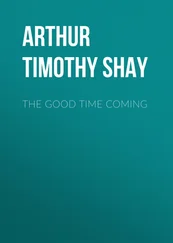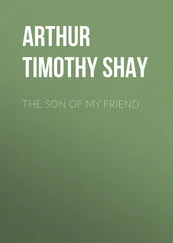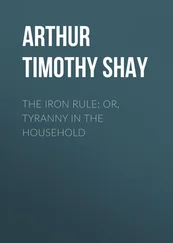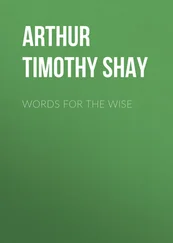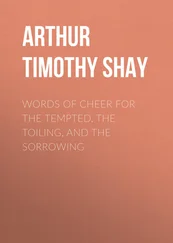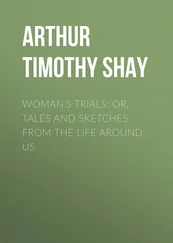Timothy Arthur - After the Storm
Здесь есть возможность читать онлайн «Timothy Arthur - After the Storm» — ознакомительный отрывок электронной книги совершенно бесплатно, а после прочтения отрывка купить полную версию. В некоторых случаях можно слушать аудио, скачать через торрент в формате fb2 и присутствует краткое содержание. Жанр: foreign_sf, literature_19, foreign_antique, foreign_prose, на английском языке. Описание произведения, (предисловие) а так же отзывы посетителей доступны на портале библиотеки ЛибКат.
- Название:After the Storm
- Автор:
- Жанр:
- Год:неизвестен
- ISBN:нет данных
- Рейтинг книги:5 / 5. Голосов: 1
-
Избранное:Добавить в избранное
- Отзывы:
-
Ваша оценка:
- 100
- 1
- 2
- 3
- 4
- 5
After the Storm: краткое содержание, описание и аннотация
Предлагаем к чтению аннотацию, описание, краткое содержание или предисловие (зависит от того, что написал сам автор книги «After the Storm»). Если вы не нашли необходимую информацию о книге — напишите в комментариях, мы постараемся отыскать её.
After the Storm — читать онлайн ознакомительный отрывок
Ниже представлен текст книги, разбитый по страницам. Система сохранения места последней прочитанной страницы, позволяет с удобством читать онлайн бесплатно книгу «After the Storm», без необходимости каждый раз заново искать на чём Вы остановились. Поставьте закладку, и сможете в любой момент перейти на страницу, на которой закончили чтение.
Интервал:
Закладка:
"And that is all! the head and front of my offending!" said Emerson, in a tone of surprise.
"It isn't so much the thing itself that I object to, as the spirit in which it is done," said Irene.
"A spirit of overbearing self-will!' said Emerson.
"Yes, if you choose. That is what my soul revolts against. I gave you my heart and my hand—my love and my confidence—not my freedom. The last is a part of my being, and I will maintain it while I have life."
"Perverse girl! What insane spirit has got possession of your mind?" exclaimed Emerson, chafed beyond endurance.
"Say on," retorted Irene; "I am prepared for this. I have seen, from the hour of our marriage, that a time of strife would come; that your will would seek to make itself ruler, and that I would not submit. I did not expect the issue to come so soon. I trusted in your love to spare me, at least, until I could be bidden from general observation when I turned myself upon you and said, Thus far thou mayest go, but no farther. But, come the struggle early or late—now or in twenty years—I am prepared."
There came at this moment a rap at their door. Mr. Emerson opened it.
"Carriage is waiting," said a servant.
"Say that we will be down in a few minutes."
The door closed.
"Come, Irene," said Mr. Emerson.
"You spoke very confidently to the servant, and said we would be down in a few minutes."
"There, there, Irene! Let this folly die; it has lived long enough. Come! Make yourself ready with all speed—our party is delayed by this prolonged absence."
"You think me trifling, and treat me as if I were a captious child," said Irene, with chilling calmness; "but I am neither."
"Then you will not go?"
"I will not go." She said the words slowly and deliberately, and as she spoke looked her husband steadily in the face. She was in earnest, and he felt that further remonstrance would be in vain.
"You will repent of this," he replied, with enough of menace in his voice to convey to her mind a great deal more than was in his thoughts. And he turned from her and left the room. Going down stairs, he found the riding-party waiting for their appearance.
"Where is Irene?" was asked by one and another, on seeing him alone.
"She does not care to ride out this afternoon, and so I have excused her," he replied. Miss Carman looked at him narrowly, and saw that there was a shade of trouble on his countenance, which he could not wholly conceal. She would have remained behind with Irene, but that would have disappointed the friend who was to be her companion in the drive.
As the party was in couples, and as Mr. Emerson had made up his mind to go without his young wife, he had to ride alone. The absence of Irene was felt as a drawback to the pleasure of all the company. Miss Carman, who understood the real cause of Irene's refusal to ride, was so much troubled in her mind that she sat almost silent during the two hours they were out. Mr. Emerson left the party after they had been out for an hour, and returned to the hotel. His excitement had cooled off, and he began to feel regret at the unbending way in which he had met his bride's unhappy mood.
"Her over-sensitive mind has taken up a wrong impression," he said, as he talked with himself; "and, instead of saying or doing anything to increase that impression, I should, by word and act of kindness, have done all in my power for its removal. Two wrongs never make a right. Passion met by passion results not in peace. I should have soothed and yielded, and so won her back to reason. As a man, I ought to possess a cooler and more rationally balanced mind. She is a being of feeling and impulse,—loving, ardent, proud, sensitive and strong-willed. Knowing this, it was madness in me to chafe instead of soothing her; to oppose, when gentle concession would have torn from her eyes an illusive veil. Oh that I could learn wisdom in time! I was in no ignorance as to her peculiar character. I knew her faults and her weaknesses, as well as her nobler qualities; and it was for me to stimulate the one and bear with the others. Duty, love, honor, humanity, all pointed to this."
The longer Mr. Emerson's thoughts ran in this direction, the deeper grew his feeling of self-condemnation, and the more tenderly yearned his heart toward the young creature he had left alone with the enemies of their peace nestling in her bosom and filling it with passion and pain. After separating himself from his party, he drove back toward the hotel at a speed that soon put his horses into a foam.
CHAPTER V
THE BURSTING OF THE STORM
MR. DELANCY was sitting in his library on the afternoon of the fourth day since the wedding-party left Ivy Cliff, when the entrance of some one caused him to turn toward the door.
"Irene!" he exclaimed, in a tone of anxiety and alarm, as he started to his feet; for his daughter stood before him. Her face was pale, her eyes fixed and sad, her dress in disorder.
"Irene, in Heaven's name, what has happened?"
"The worst," she answered, in a low, hoarse voice, not moving from the spot where she first stood still.
"Speak plainly, my child. I cannot bear suspense."
"I have left my husband and returned to you!" was the firmly uttered reply.
"Oh, folly! oh, madness! What evil counselor has prevailed with you, my unhappy child?" said Mr. Delancy, in a voice of anguish.
"I have counseled with no one but myself."
"Never a wise counselor—never a wise counselor! But why, why have you taken this desperate step?"
"In self-protection," replied Irene.
"Sit down, my child. There!" and he led her to a seat. "Now let me remove your bonnet and shawl. How wretched you look, poor, misguided one! I could have laid you in the grave with less agony than I feel in seeing you thus."
Her heart was touched at this, and tears fell over her face. In the selfishness of her own sternly-borne trouble, she had forgotten the sorrow she was bringing to her father's heart.
"Poor child! poor child!" sobbed the old man, as he sat down beside Irene and drew her head against his breast. And so both wept together for a time. After they had grown calm, Mr. Delancy said—
"Tell me, Irene, without disguise of any kind, the meaning of this step which you have so hastily taken. Let me have the beginning, progress and consummation of the sad misunderstanding."
While yet under the government of blind passion, ere her husband returned from the drive which Irene had refused to take with him, she had, acting from a sudden suggestion that came to her mind, left her room and, taking the cars, passed down to Albany, where she remained until morning at one of the hotels. In silence and loneliness she had, during the almost sleepless night that followed, ample time for reflection and repentance. And both came, with convictions of error and deep regret for the unwise, almost disgraceful step she had taken, involving not only suffering, but humiliating exposure of herself and husband. But it was felt to be too late now to look back. Pride would have laid upon her a positive interdiction, if other considerations had not come in to push the question of return aside.
In the morning, without partaking of food, Irene left in the New York boat, and passed down the river toward the home from which she had gone forth, only a few days before, a happy bride—returning with the cup, then full of the sweet wine of life, now brimming with the bitterest potion that had ever touched her lips.
And so she had come back to her father's house. In all the hours of mental anguish which had passed since her departure from Saratoga, there had been an accusing spirit at her ear, and, resist as she would, self-condemnation prevailed over attempted self-justification. The cause of this unhappy rupture was so slight, the first provocation so insignificant, that she felt the difficulty of making out her case before her father. As to the world, pride counseled silence.
Читать дальшеИнтервал:
Закладка:
Похожие книги на «After the Storm»
Представляем Вашему вниманию похожие книги на «After the Storm» списком для выбора. Мы отобрали схожую по названию и смыслу литературу в надежде предоставить читателям больше вариантов отыскать новые, интересные, ещё непрочитанные произведения.
Обсуждение, отзывы о книге «After the Storm» и просто собственные мнения читателей. Оставьте ваши комментарии, напишите, что Вы думаете о произведении, его смысле или главных героях. Укажите что конкретно понравилось, а что нет, и почему Вы так считаете.
